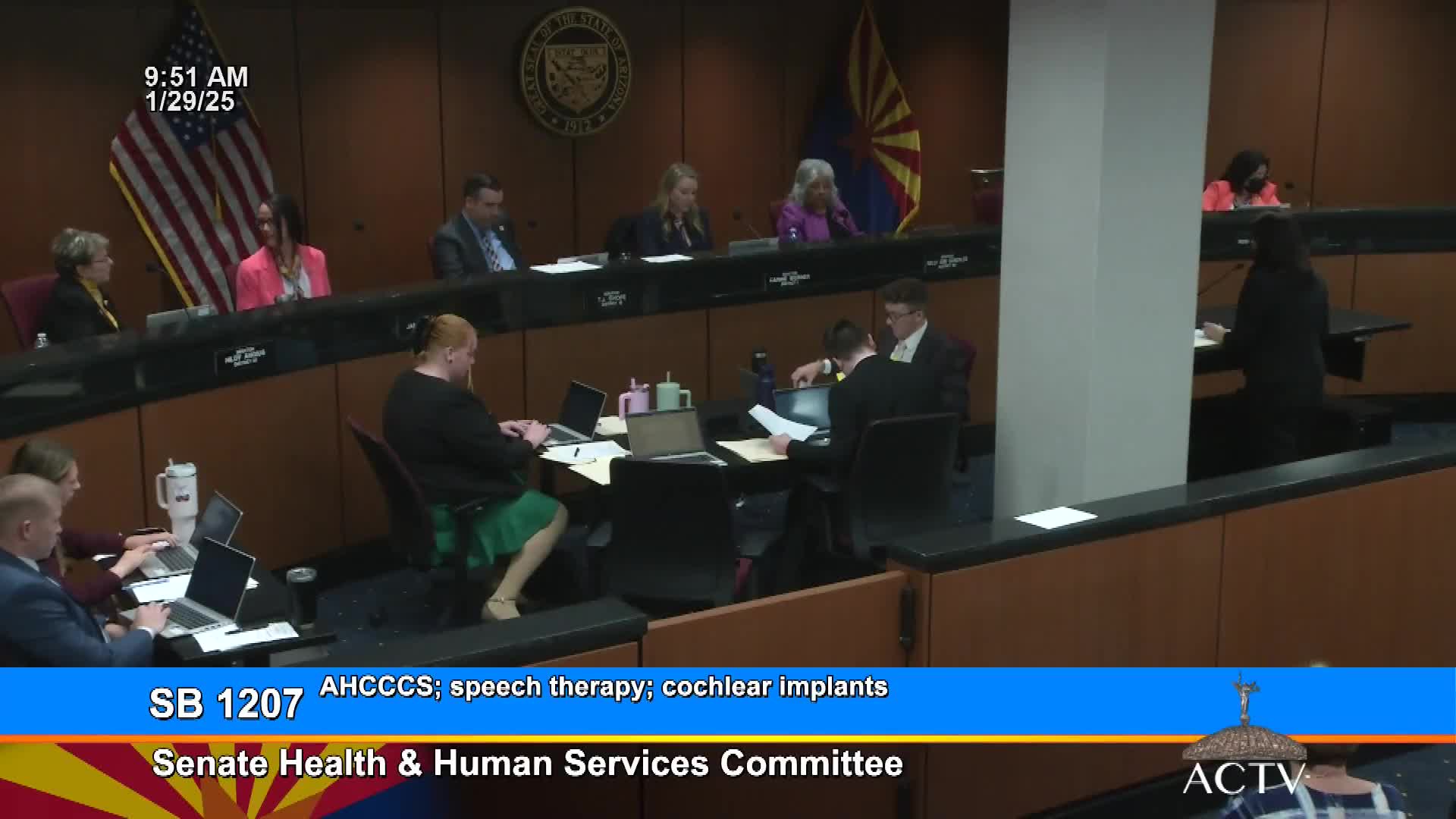Article not found
This article is no longer available. But don't worry—we've gathered other articles that discuss the same topic.
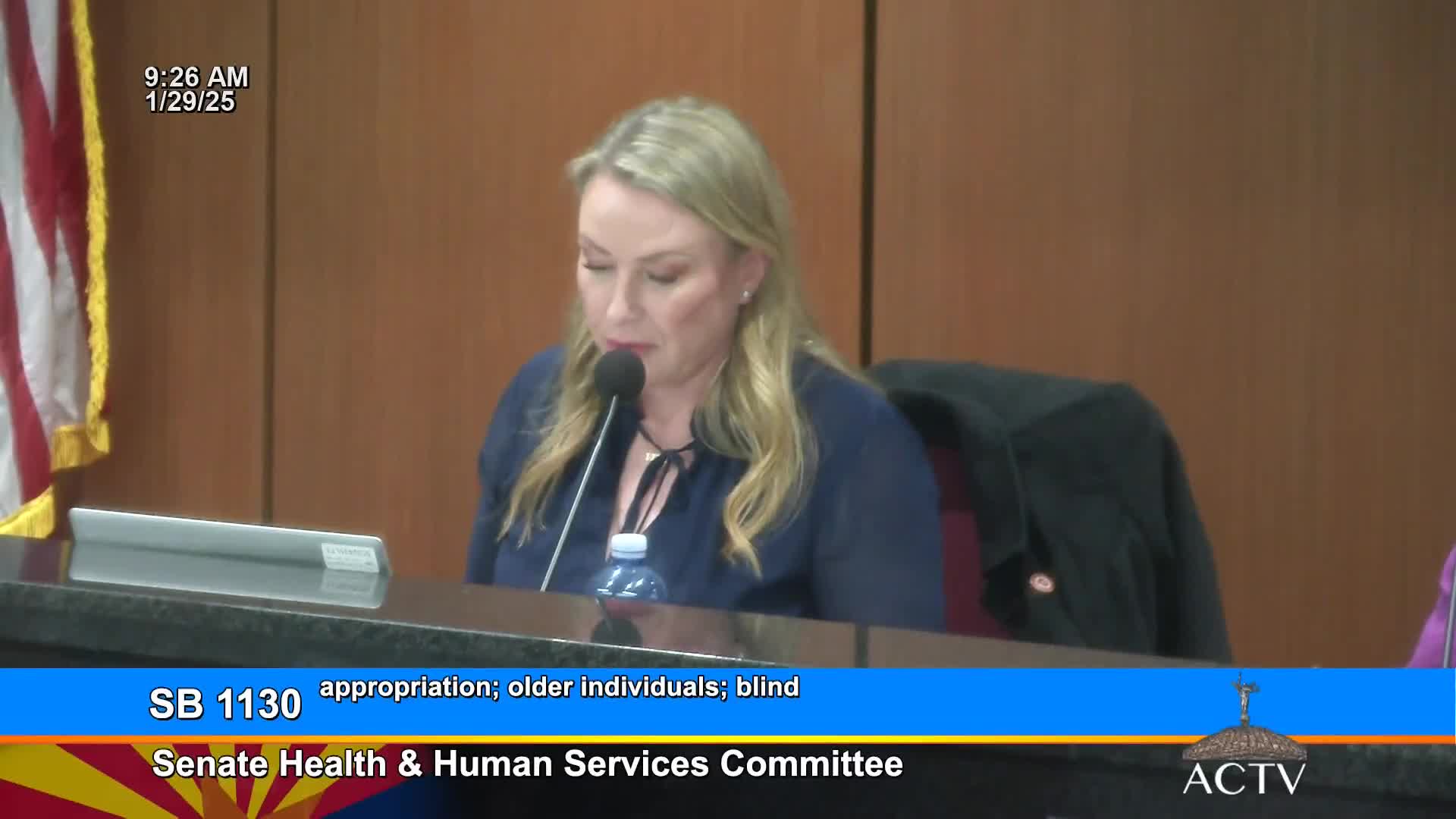
Panel backs bill to publish continuous glucose monitor coverage rules, align pharmacy and DME policies
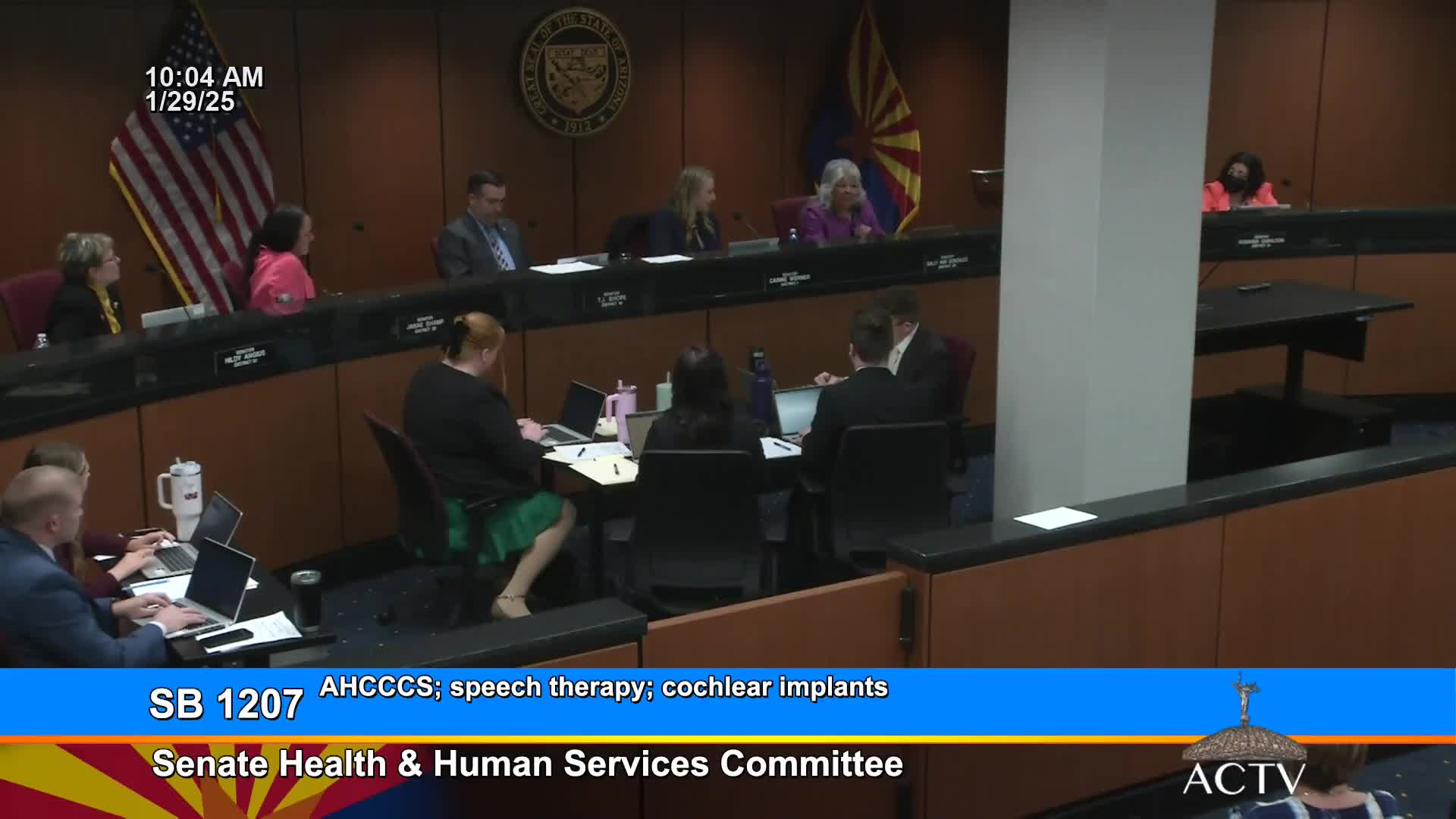
Senate committee backs $1 million request for services serving older Arizonans who are blind
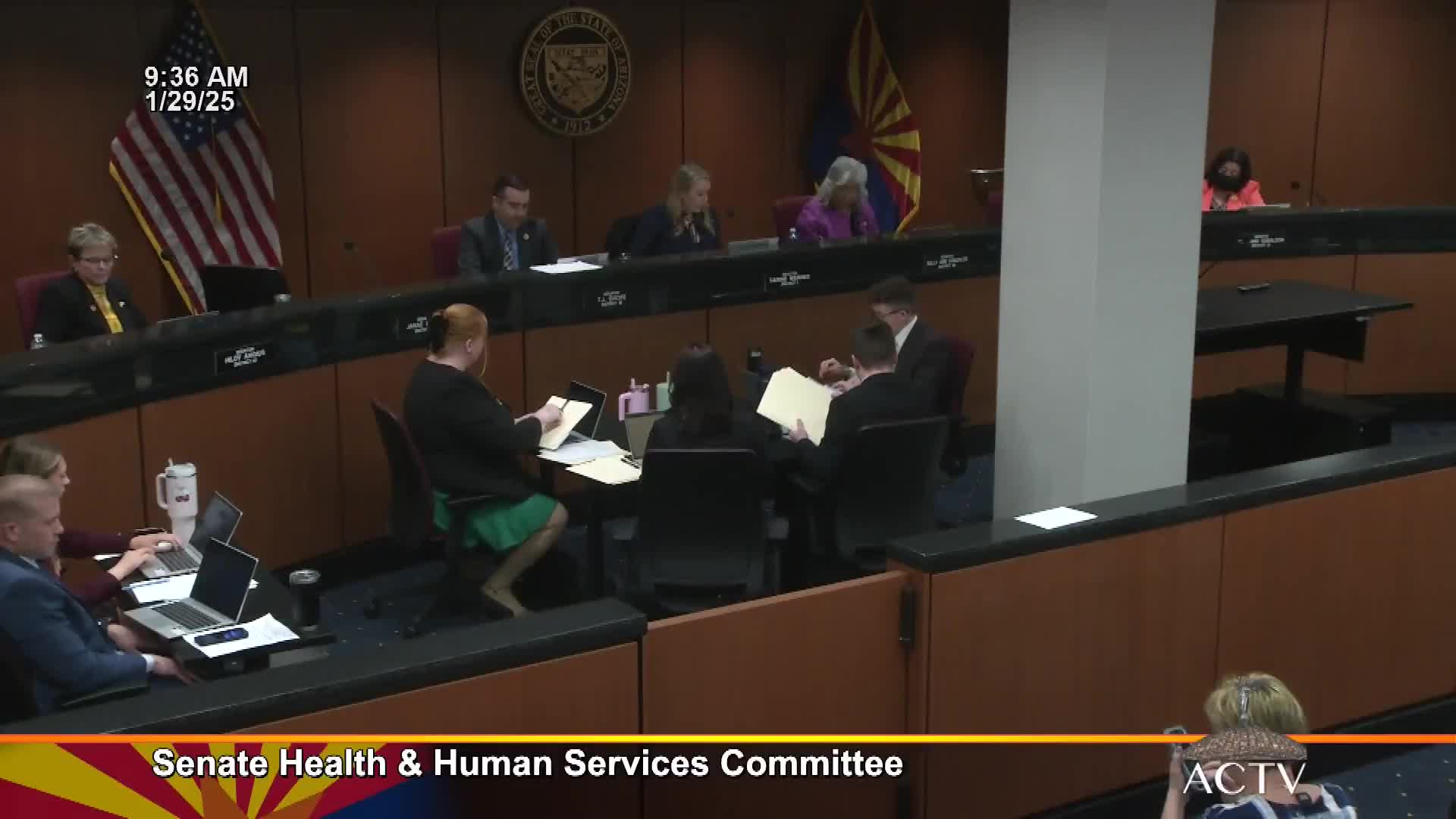
Committee recommends due-pass for bill allowing mild hyperbaric oxygen in assisted-living homes
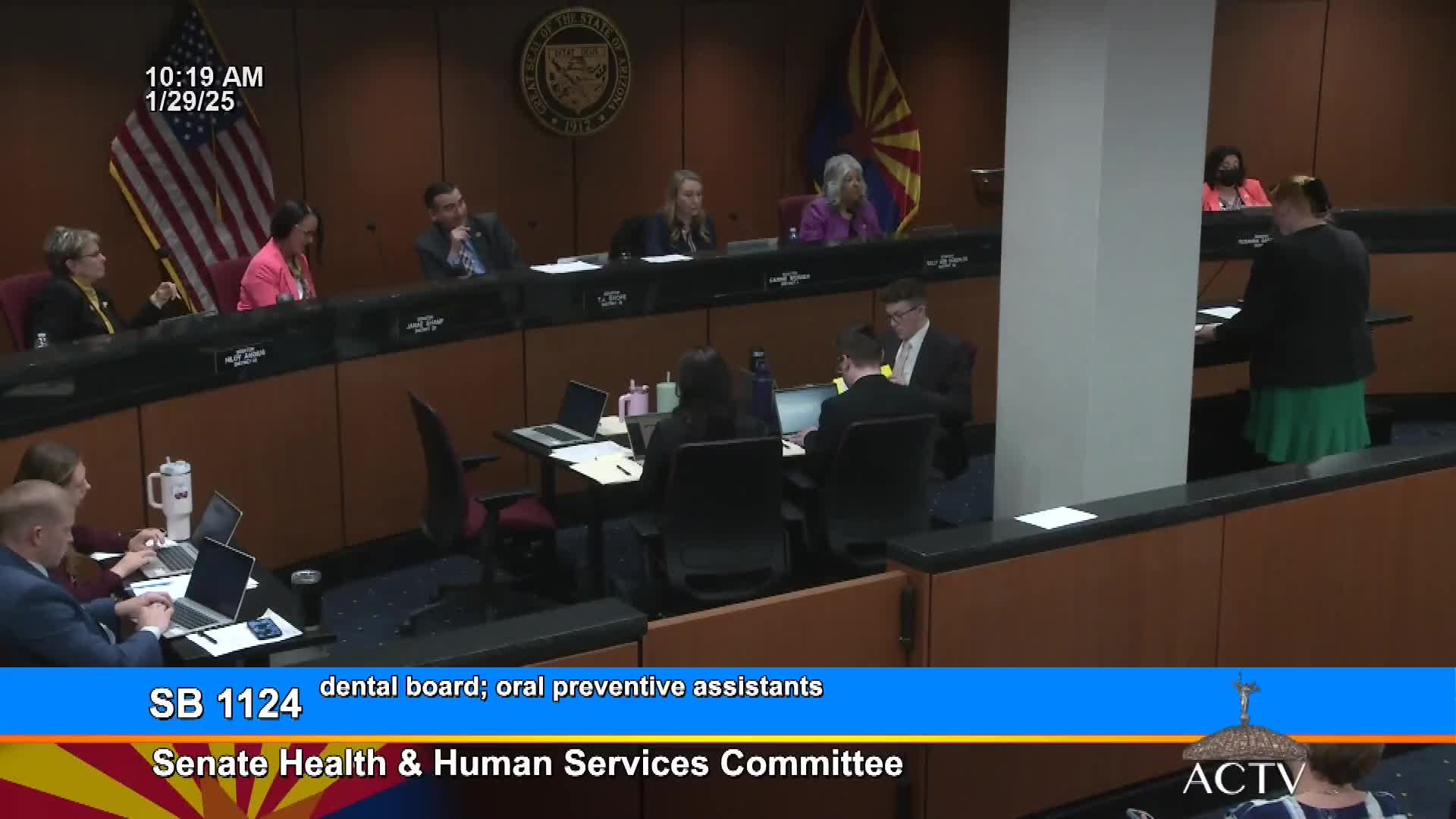
Committee advances bill to create 'oral preventative assistant' role with amended scope and reporting requirements
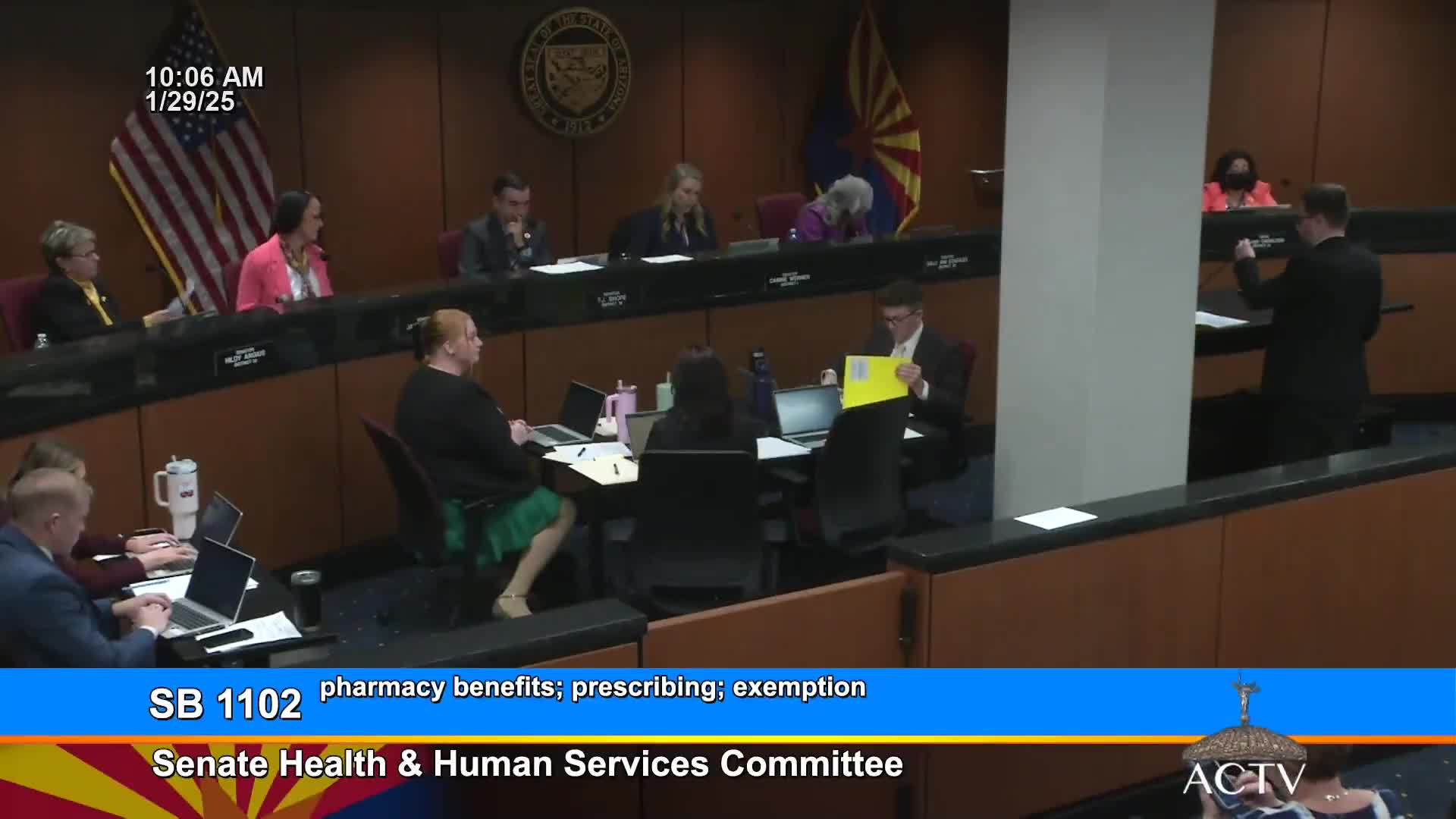
Committee adopts amendment, advances SB 1102 to curb nonmedical drug switching mid-plan year
